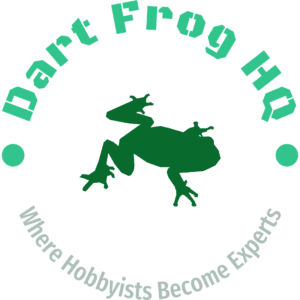Ever heard of a bioactive pet so beneficial, it takes pet ownership to an entirely new level? Enter the Dairy Cow Isopods. These little creatures are more than just fascinating pets; they bring a slew of environmental benefits to the table.
What are Dairy Cow Isopods?
Origin and Habitat
Native to the wooded areas of Europe, Dairy Cow Isopods are crustaceans that live primarily on the forest floor, playing a significant role in their ecosystem. They’re named for their black and white spotted appearance, reminiscent of dairy cows.
Physical Characteristics
Typically growing up to 18mm in length, these isopods boast a distinct black and white coloration. Their flat, segmented bodies make them efficient at navigating through tiny spaces, searching for food.
Benefits of Keeping Dairy Cow Isopods
Environmental Advantages
Dairy Cow Isopods play a vital role in breaking down organic material, making them exceptional cleaners in bioactive setups. By decomposing waste and detritus, they contribute to the health of the soil and the ecosystem.
Pet Compatibility
Think of them as the silent helpers in terrariums and vivariums. They cohabit peacefully with many reptiles, amphibians, and insects, often helping maintain cleanliness in their habitats.
How to Care for Dairy Cow Isopods
Housing
A well-ventilated container with a mix of peat moss and decayed leaf litter provides an ideal environment. They also appreciate hiding spots, which you can provide using bark or coconut shells.
Diet and Nutrition
Dairy Cow Isopods thrive on decaying plant material. Offer them a mix of leaf litter, decayed wood, and occasional vegetables like zucchini or pumpkin.
Breeding and Population Control
Isopods breed quickly under optimal conditions. To control their population, simply reduce the moisture in their environment, or decrease their food supply temporarily.
Common Challenges and Solutions
Potential Pests and Diseases
Like any other pet, Dairy Cow Isopods can be prone to mites and fungal infections. It’s essential to maintain cleanliness and avoid over-moistening their habitat.
Handling and Interaction Tips
Though harmless, it’s best to limit direct handling to reduce stress. If necessary, use a soft brush or scoop them gently with a piece of paper.
Where to Buy Dairy Cow Isopods
Reputable online sellers and exotic pet stores often carry Dairy Cow Isopods. Ensure that you’re purchasing from a trusted source to avoid introducing pests or diseases to your setup.
Conclusion
Dairy Cow Isopods aren’t just intriguing pets; they’re ecological warriors. Their ability to coexist with other animals, combined with their environmental benefits, makes them a top choice for bioactive enthusiasts. So, why not consider adding these tiny custodians to your terrarium or vivarium?
FAQs
- Q: Are Dairy Cow Isopods harmful to other pets? A: No, they coexist peacefully with most terrarium and vivarium inhabitants.
- Q: Do I need to provide them with water? A: While they extract moisture from their environment, it’s good to mist their enclosure lightly to maintain humidity.
- Q: Can I handle them regularly? A: It’s best to limit direct handling, but they’re harmless if you need to move them.
- Q: What’s the lifespan of a Dairy Cow Isopod? A: With proper care, they can live up to 3 years.
- Q: Can they live outside of a controlled environment? A: While they can survive in natural settings, it’s best to keep them in controlled environments to monitor their health and population.



